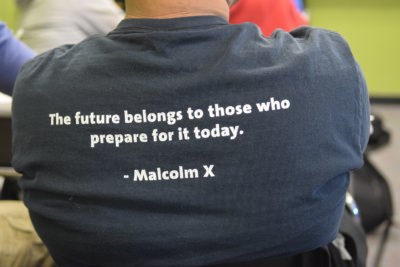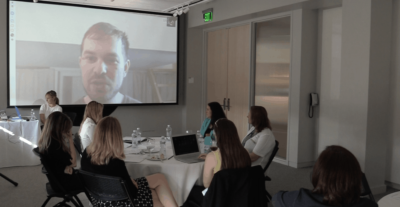“It is time for change. It is time for action. It is time to get serious about opening the doors to employment to the majority of Americans with disabilities.”
Senator Tom Harkin made this pronouncement in July 2012 as the United States Senate’s Committee on Health, Education, Labor & Pensions (HELP) announced that it was planning to take on a stubborn and persistent national problem: low employment rates for people with disabilities. Senator Harkin, who chaired the committee, observed that while the Americans with Disabilities Act (ADA) and the Individuals with Disabilities Education Act (IDEA) had opened up many doors for people with disabilities, the door to employment had mostly remained closed. As evidence, the committee pointed to over three decades of labor statistics indicating that this country had failed to move much beyond a 33 percent employment rate for people with disabilities. In a call to action, the committee promised to promote new legislative policies and modernize disability services in order to address this overlooked job crisis. Two years later, in 2014, Congress passed the Workforce Innovation and Opportunity Act (WIOA), which places a much greater emphasis on preparing and training young adults with disabilities for employment. Key provisions are highlighted below.
Pre-employment transition services
Many students with disabilities leave high school without employment and with no plans to attend college. WIOA supports students with disabilities by mandating that they be provided with job exploration counseling, work-based learning experiences, counseling about postsecondary opportunities, workplace readiness training to develop social and independent living skills, and training in self-advocacy. The services are available to any student, including students in secondary, postsecondary, homeschool, or other non-traditional education programs (e.g., juvenile education programs).
The Division of Vocational Rehabilitation (VR) and the Division of Services for the Blind (DSB) are responsible for ensuring that students with disabilities receive pre-employment transition services. To qualify for these services, a student must:
1) be in an education program
2) be between the ages of 16 and 21
3) have a disability
4) need the service(s)
Education programs should collaborate with VR and DSB to ensure that eligible students receive these services.
Students who qualify for but are not yet receiving these services should contact their local VR or DSB office. Even if they have not applied for or been determined eligible for other VR or DSB services, they can still receive pre-employment transition services. Students also have a right to appeal decisions about the receipt of these services. They may contact the Client Assistance Program (919-855-3600) for assistance and instruction on how to appeal.
Independent living centers
Independent living centers are a free community resource that provide peer counseling, independent living skills training, individual and systems advocacy, and information and referrals for individuals with significant disabilities. WIOA added the requirement that these centers help out-of-school youth with significant disabilities transition to postsecondary life. Currently, independent living services are available in half of the counties in North Carolina. You can find out if your county is served by a center online at http://ncsilc.org/centers/.
One-stop centers
One-stop centers (also called American job centers) are an underutilized, free resource for transitioning-aged youths. There are around a hundred job centers throughout the state. These centers can assist in-school and out-of-school youth with career exploration and guidance, work experiences, and job training. WIOA has ensured that the centers are physically and programmatically accessible for people with disabilities. If you find that a one-stop center is not accessible, contact Disability Rights North Carolina for assistance.
Subminimum wage employment
Labor laws permit employers holding a subminimum wage certificate to pay people with disabilities a special wage that is less than the minimum wage. WIOA makes it clear that a youth with a disability may be employed at this special wage only if he or she has received a meaningful opportunity to prepare for and obtain employment at or above the minimum wage. A “meaningful opportunity” means the youth must have been provided with appropriate transition services under the IDEA, pre-employment transition services, VR or DSB employment services, career counseling, and referrals for other employment-related supports. WIOA also provides that educational programs may not enter into an arrangement with subminimum wage employers under which students or transitioning youth with disabilities will be paid a subminimum wage.
WIOA represents a major step forward in the struggle to improve employment outcomes for persons with disabilities. It seeks to develop a new generation of better prepared, better trained youth to combat unemployment and subminimum wages. But its ultimate success will depend on how well schools and other education programs link its youth to these available and much-needed services.





